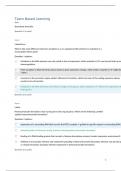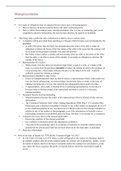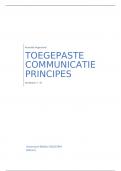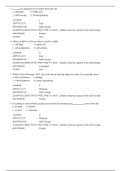Other
Team based learning and practice exam questions and answers
- Module
- Institution
This 14 page long document includes the questions and answers of the team based learning exercises (12), application cases (3), and a practise exam (4) of the course Advanced Molecular Biology (Radboud University NWI-BB017C 6EC). My grade = 8,0.
[Show more]






